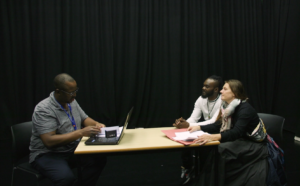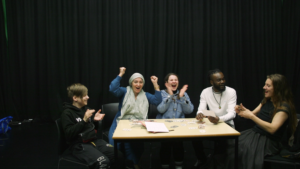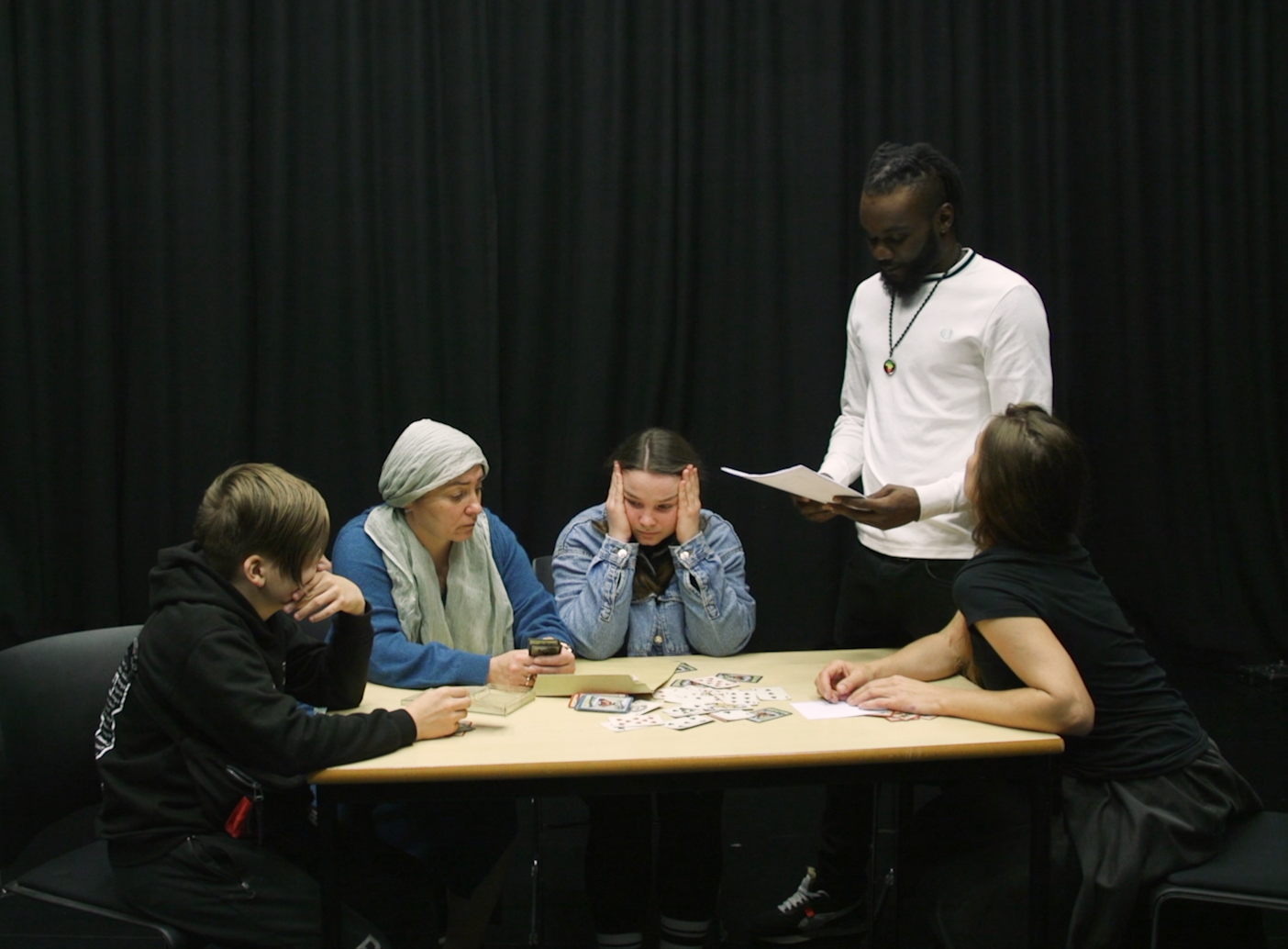We are pleased to launch our second film, Applying for a Visa to Meet Care Needs, co-produced with transnational family members and Rank and File Theatre performers during participatory feedback workshops in England.
The film shows a transnational family’s frustrations and challenges in applying for a visa for a family member to visit the UK to meet their care needs. The parents of Sara, a young carer, are applying for a visa for one of their sisters to come to the UK to help provide care for the grandmother, whose health has deteriorated. The sister would also help care for the children and alleviate their young caring roles. The film shows the difficult process of being interviewed by the Home Office and the family receiving the outcome of their visa application.

Family participants highlighted the barriers they faced in applying for family reunification and visa applications for family visits. Such barriers include: a lack of clarity about the information and evidence required on application forms; the form uses complicated, bureaucratic language that is difficult for speakers of other languages to understand; and the application process is very costly and takes a long time to be processed. Such barriers to mobility for transnational family members need to be understood in the context of increasingly restrictive immigration policies and the wider ‘hostile environment’ for migrants in the UK, EU and many other countries globally.
Families imagined a more positive outcome where there was clearer information about what is required for visa applications, a more helpful and supportive approach from immigration officials, alongside an immigration policy that allows family visits from extended family members such as siblings.

A key recommendation ranked highly in the workshops was that extended family members should be allowed to travel more easily to provide care through flexible family reunification and visa policies. This would enable extended family members to visit to provide unpaid care that is considered culturally appropriate by the family, and would thereby help to alleviate children’s care work and enhance the whole family’s wellbeing.
More flexible visa and family reunification policies that allow extended family members to travel in times of crisis to meet acute and longer term care needs could also help to reduce the need for families to have to rely on health and social care services in settlement countries.
In feedback workshops, families also suggested that:
- more training is needed for professionals interacting with migrant families to understand the cultural care needs within the family;
- family reunification and visa forms need to be user-friendly;
- support needs to be provided with filling in forms and signposting to organisations that can help;
- clear explanations are needed of the evidence families need to provide in support of their application;
- the costs of applications needs to be reduced;
- applications should be processed more quickly.
The film was co-produced with families participating in the Transnational Families in Europe: Care, Inequalities and Wellbeing research project (led by Professor Ruth Evans, University of Reading and Dr. Rosa Mas Giralt, University of Leeds) and performers from Rank and File Theatre, who have lived experience of forced migration, disability and mental health challenges. The research team and Rank and File actors discussed with transnational families the actions and social changes they would like to see to address these challenges in participatory workshops in England, using Augusto Boal’s Theatre of the Oppressed approach.
Watch the film on YouTube: https://youtu.be/ETCP-vrRhCw
Read more and watch our film about Young Caregiving in Transnational Families.
For more films from the research project, check out our YouTube channel and subscribe: @CarewellTransnationalFamilies
Read more from Hannah and Jude from Rank and File Theatre about the participatory theatre approach we used in the family feedback workshops.

